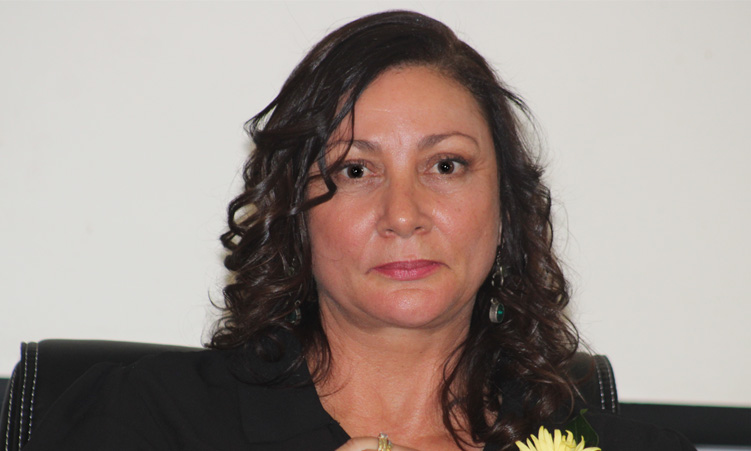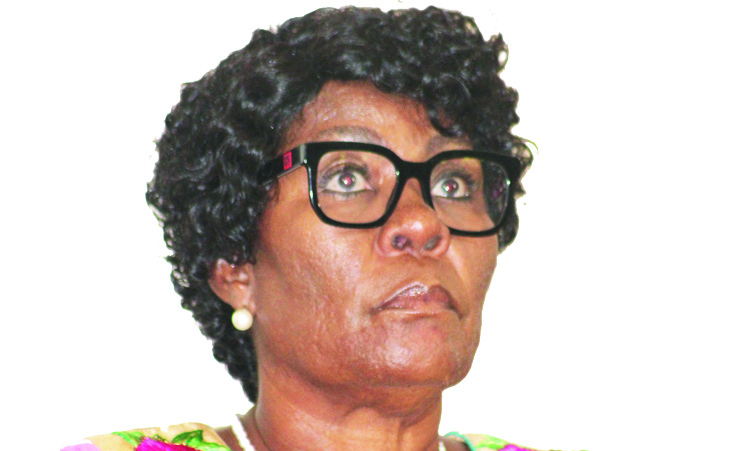At least75% of the pupils who wrote the ordinary level Grade 11 national examinations in 2023 did not qualify to proceed with tertiary education or to Grade 12.
This, however, is a slight improvement of 3,8% compared to 2022 results.
Out of the 40 682 pupils who sat for the examinations, 10 261 candidates may proceed to Grade 12 at advanced subsidiary (AS) level this year, or continue with tertiary education with their Namibia Senior Secondary Certificate Ordinary (NSSCO) results.
This leaves 30 421 pupils who did not meet this requirement.
This was announced by minister of education, arts and culture Anna Nghipondoka yesterday.
“ […] although the ministry would prefer these pupils to remain in the system and to complete their formal education at advanced subsidiary level,” she said.
Last year, a total of 38 019 full-time candidates wrote the NSSCO exams at 363 full-time centres, of which only 5 812 scored 25 points or higher, while 8 133 (21%) qualified to progress to AS level in 2023.

LEAVE ENGLISH BEHIND
The minister was disappointed with parents over Namibian pupils’ performance in local languages, while flourishing in European languages.
“This thing of our children speaking English at home also. Even when your mother and father are speaking an African language, you go there and people cannot greet you in Oshiwambo or Silozi or Khoekhoegowab,” she said.
Only 7,6% of the pupils who sat for language exams obtained an A, while last year an average of 9,3% obtained A symbols.
“I don’t know, what happened to our local languages,” the minister said.
The majority of the pupils obtained either a C grade (60,8%) or D grade (83,5%) for languages.
Nghipondoka admitted that some pupils were not taught what was in current syllabuses.
“The above finding is confirmed with the observation that in some subjects, some topics are not taught at all at some centres, while prescribed in the syllabuses.
“The ministry picked it up during the marking sessions.
“[Which] shows clear evidence that more still needs to be done to upgrade the subject content knowledge and how to teach higher-order thinking skills,” she said.
Popular Democratic Movement (PDM) parliamentarian Maximalliant Katjimune yesterday raised concern over the persistently low performance of pupils in their vernaculars.
He said this issue reflects poorly on Namibia as a nation, indicating a lack of emphasis on early childhood communication in children’s native languages.
“It is an indictment on modern parents, because nowadays you even see a black parent speaking to the children in English the whole day. Most of the youth and children born after 2000 cannot even speak their vernacular properly. So what do we expect?” Katjimune said.
Landless People’s Movement (LPM) youth leader Duminga Ndala has called for a renewed focus on the importance of preserving and promoting indigenous languages.
“It should begin at home. We need to invest in more learning materials in our indigenous languages,” she said.
Ndala said there is a need for a closer examination of the quality of educators responsible for teaching indigenous languages.
“Indigenous languages should be taught by the [speakers] of the languages for better delivery,” she said.
SCHOOL LEADERS BERATED
Executive director of education, arts and culture Sanet Steenkamp yesterday came out strongly against school leaders who “abuse and misuse” power.
“You cannot have a situation of mismanagement of school funds and you turn a blind eye. You cannot have maladministration in the recruitment of teachers and you turn a blind eye,” she said.
She further called out the leadership at schools for not dealing with performance agreements.
“We cannot have an exco not signing our performance agreements and not having performance reviews,” Steenkamp said.
She told her colleagues to assert their authority at all levels of leadership and management without abusing power.
“So let us assert our authority that is granted to us in our key positions without the abuse and misuse of power, and we will be able to take a principled stance and address key issues right there and then,” she said.
Steenkamp asked teachers to have a better work ethic.
“There is a lot of division in our schools. Please sort out your issues at school level. Stop having cliques in staff rooms,” she said.

‘STILL DISASTROUS’
Opposition parties have labelled the 2023 academic results as “still disastrous”, saying the 3,8% increase in the Grade 11 pass rate falls short of justifying the considerable investment in education.
Katjimune said despite substantial investment in the basic education system, academic outcomes remain disappointingly bleak.
“There remains a huge contradiction between what we are pumping into the basic education sector and the output we are getting,” he said.
With the 2023/24 budget allocation, the education ministry received a budget allocation of N$16,7 billion, representing approximately 22,5% of the total national budget.
Katjimune said a portion of the 74,8% of pupils who did not meet the criteria for AS level must still confront the challenging prospect of unemployment.
“A huge chunk of that number will be left to navigate and hustle through the harsh reality of unemployment, especially in a post-school environment with little opportunities for our youth,” Katjimune said.
In 2022, 38 019 full-time candidates participated in the NSSCO exams across 363 full-time centres.
Out of this group, only 5 812 achieved a score of 25 points or above, and 8 133 (21%) met the criteria to advance to AS level in 2023.
Ndala said while the 3,8 % improvement for Grade 11 candidates in 2023 is welcomed, the country should aim for a 50% pass rate.
“This can only be achieved through the involvement of all stakeholders,” she said.
She said by examining demographics and comparing results across regions, one would observe that some of the most economically disadvantaged areas show the lowest academic performance.
“This should tell you there is a correlation between the performance and the social status of a region. More investment should thus be made in these regions to improve their results,” Ndala said.
She said the 3,8% increase is highly motivating and encouraging for teachers, students and the entire education fraternity.
“Despite the complaints of a lack of adequate educational resources to aid the learning process, I think our teachers and pupils have forged through and they delivered better results,” Ndala said.
Stay informed with The Namibian – your source for credible journalism. Get in-depth reporting and opinions for
only N$85 a month. Invest in journalism, invest in democracy –
Subscribe Now!






